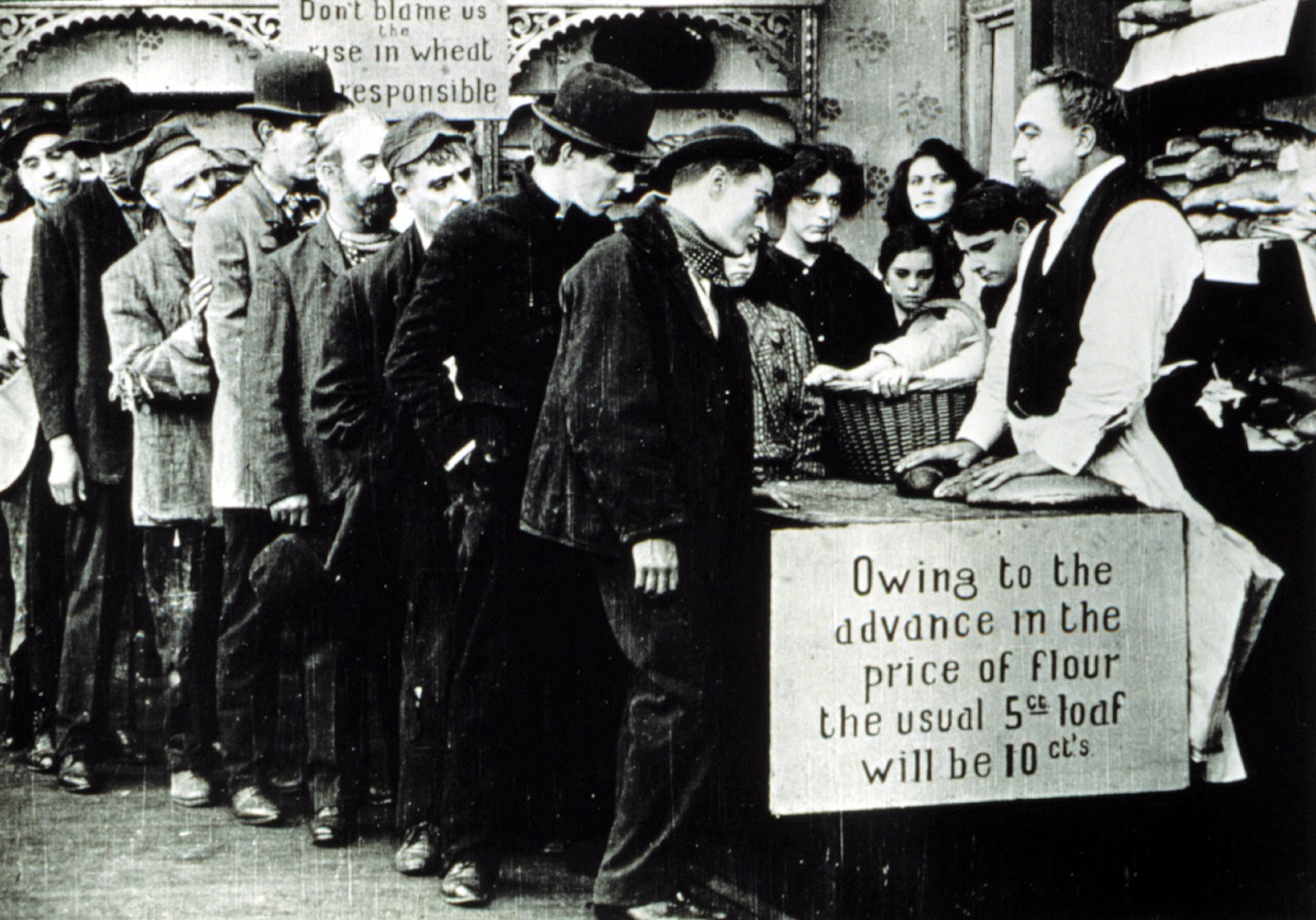War in Europe’s breadbasket could send mns into hunger worldwide

The war in Ukraine is bad news for food security: It’s no secret that Russia’s ongoing war in Ukraine is bad for economies the world over. The main worry for most is a slowdown in growth, after the war sent energy and food prices skyrocketing. But while wealthier countries can for the most part absorb price hikes, some poorer nations are looking at a starker reality: more of their citizens going hungry, in what some are calling the start of a “global food crisis.”
Global food prices surged to a new all-time high in March, according to UN data. Food prices are now more than 15% higher than the previous all-time high, recorded in February 2011.
Why war in Ukraine exacerbates food supply issues: The two countries provide around a third of the world’s wheat, almost 80% of sunflower oil production, and about a fifth of corn exports — not to mention key supplies of fertilizers for farmers elsewhere. Grain exports out of Ukraine have stopped almost entirely as Russia blockades the country’s sea ports. For the trade that is continuing (largely on the Russian side), increased risk means higher ins. and shipping costs, and a tighter market as some traders steer clear. That all leads to knock-on effects (read: higher prices) in global commodities markets. Looking ahead, one key question is how much damage Ukraine’s farms have sustained as large swathes of land become battlefields — and how long it could take for Ukrainian farmers to get back on their feet.
REMEMBER-Food inflation is nothing new. The pandemic, persistent supply-chain issues, and climate change have all been driving up prices and destabilizing global food flows for some time. Some say wealthy nations have failed to address a food crisis that has been coming up in their rear-view mirrors for years.
Who stands to be hit the hardest? Countries already facing major food security challenges will unsurprisingly bear the brunt of rising prices. A quarter of Africans are facing a food security crisis, the Wall Street Journal quotes Dominik Stillhart, the International Committee of the Red Cross’ global operations director as saying.
International nonprofits are raising the alarm over West Africa in particular, where another 11 mn people could be pushed into hunger by this summer, humanitarian organizations have said. They’re calling on wealthy nations to help plug the USD 4 bn aid financing gap in the region.
And developed nations aren’t safe either: Price hikes disproportionately hit people on lower incomes no matter where they live, because they spend a greater share of their earnings on essentials. Poorer families could end up sacrificing electricity, healthcare, and heating in order to buy food, be forced to skip meals, or opt for less expensive and less nutritious meals, according to a FAO information note (pdf).
Some defensive moves to mitigate the crisis aren’t helping: The war has pushed some countries — including Egypt — to respond with export restrictions as they look to secure their domestic needs. The World Trade Organization is urging countries to drop these controls and offer their surplus stock of basic commodities such as vegetable oil and grains to the world market to ease supply shortages.
Hunger also has its own consequences, chief among them political instability, mass migration, and conflict, the World Food Programme notes (pdf).
Food is a concern in our neck of the woods: Some Middle Eastern nations are “struggling to access enough food because of a toxic combination of conflict, climate change and the economic aftermath of Covid-19,” the United Nations World Food Programme’s MENA director Corinne Fleischer previously said. “People’s resilience is at a breaking point. This crisis is creating shock waves in the food markets that touch every home in this region.”
For Egypt, wheat is key: We’re the world’s largest importer of wheat, and Russia and Ukraine together supply more than 80% of our imported wheat in peacetime. That wheat largely ends up as subsidized bread loaves, which are handed out to more than 60 mn Egyptians. With the war threatening our grain supply, the government has moved to tap new markets for imports, up its purchases in the local harvest, and introduce price caps on unsubsidized bread. Egypt currently had enough wheat to cover the next 2.6 months’ worth of consumption in early April, the government said, down from the four-month figure announced last month.
What can be done? Targeted emergency financing, for one. Multilateral lenders and food bodies are calling for a coordinated financing push from wealthy nations to help address the problem in developing countries, but little concrete action has so far been taken. Some are hoping that could change within days as world leaders discuss the issue in Washington this week amid the IMF and World Bank spring meetings. The EU has already said it will provide Egypt with EUR 100 mn in support to help us tackle rising food prices, part of a freshly announced EUR 225 mn Food and Resilience Facility for MENA countries.
Looking to the long term, there are systemic issues to be faced: “Every country going forward needs to continue to transform its food system and make it more resilient in the long term,” says World Bank Vice-President Juergen Voegele. That means mobilizing private funding and innovative agricultural methods “to do more with less: Produce more nutritious, more diverse and more high-value food for a growing population — and to do so with less water and less fertilizer, while limiting land use change and greenhouse gas emissions.”